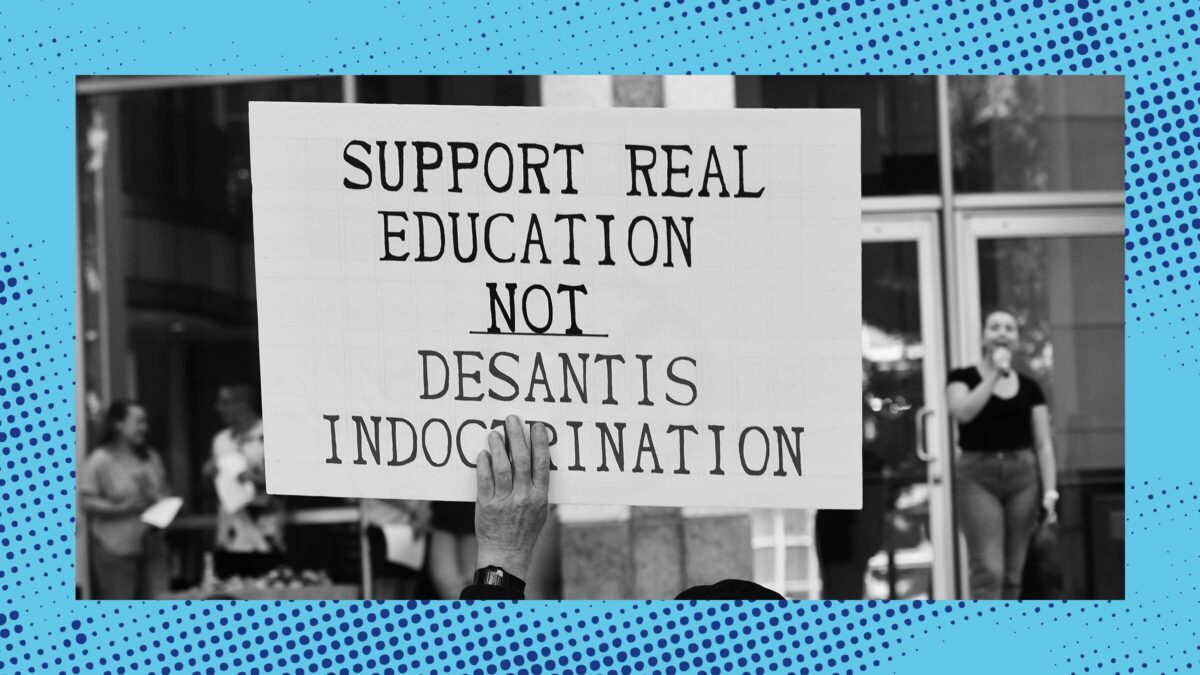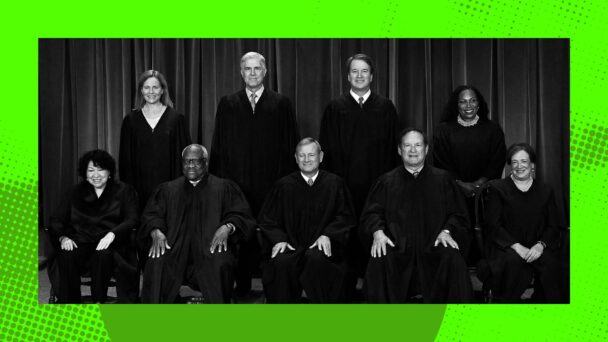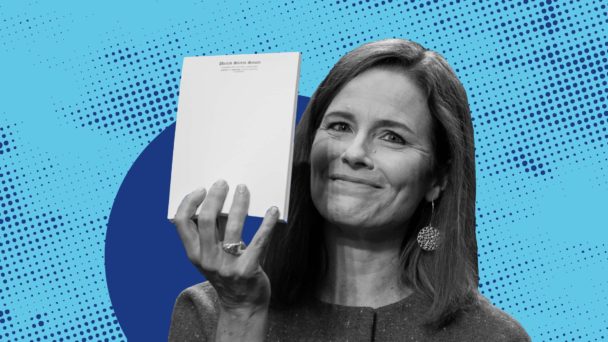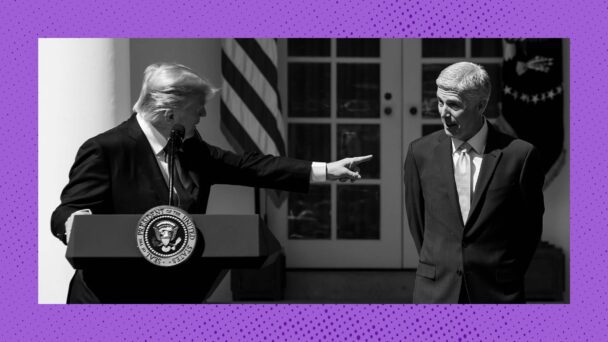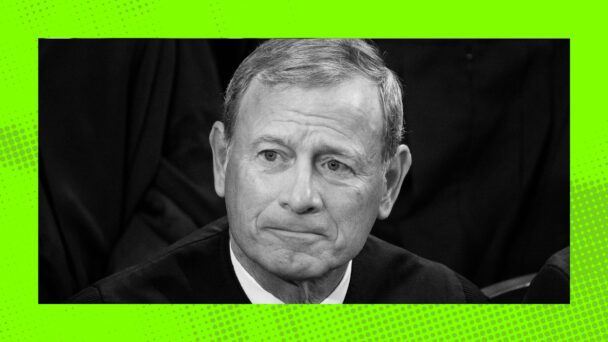Katie Wood, 26, teaches 10th-grade algebra at her hometown high school, about a half-hour south of Tampa. She is also a transgender woman. On her first day teaching in August 2021, she wrote “Ms. Wood” on the blackboard and introduced herself as such, and everyone used her correct pronouns and title without issue.
At least, they used to, until July 2023, when a new state law went into effect that prohibits public school employees from telling students their preferred pronouns and titles—if and only if “such preferred personal title or pronouns do not correspond to his or her sex.” Now, writing “Ms. Wood” on the blackboard is a fireable offense that could cost Katie her teaching certificate.
Under that law, if state investigators determine that local school boards are not enforcing the policy or reporting violations, those school boards can lose funding and the superintendent must forfeit their salary for one year. Upon conferring with her school’s principal, assistant principal, and school board members about how to avoid running afoul of the law, Wood’s employers advised her to start using the title Mr., Teacher, or Coach. “Everyone told me it’s state law and there is nothing we can do,” said Wood.
In December 2023, Wood sued the state in federal district court, arguing that Florida’s law abridged her constitutional right to freedom of speech. In April 2024, Chief Judge Mark Walker of the Northern District of Florida found that she was “substantially likely” to win her claim, and granted a preliminary injunction preventing the state from enforcing the law against her while the case proceeds through the courts.
But last week, a divided three-judge panel of the Eleventh Circuit Court of Appeals vacated the injunction and sent the case back to the district court for a redo. Judges Kevin Newsom and Andrew Brasher, both appointees of President Donald Trump, held in Wood v. Florida Department of Education that “the district court misapplied the law, and thus abused its discretion.” In dissent, Judge Adalberto Jordan, an appointee of President Barack Obama, said his colleagues were “mistaken,” and pointed out that if the majority were correct, Florida could compel married female teachers to use their husbands’ last names, or demand that unmarried female teachers go by “Mrs.” anyway. “If these possibilities sound First Amendment crazy, it is because they are,” said Jordan.
The supposedly misapplied law that divided the district court from the appeals court (and the appeals court from itself) comes from Garcetti v. Ceballos, a 2006 Supreme Court case about the free speech rights of public officials. Under Garcetti, a court evaluating alleged infringements on a government worker’s speech rights must first decide if “the employee spoke as a citizen on a matter of public concern.” That means the threshold question in this case is: When Katie interacts with students and calls herself “Ms. Wood” and uses pronouns like “she” and “her,” is she speaking as a government employee, or simply speaking as a private citizen?
For the district court, it was clear that when Wood refers to herself, she’s speaking for, well, herself. In granting her request for a preliminary injunction, Walker said that “no one” would mistake references to her personal identity “to be conveying the government’s message regarding her identity.” Nor, Walker continued, is Wood’s self-identification related to the speech that she was hired to provide: “It owes its existence not to her professional responsibilities as a math teacher, but instead to her identity as a woman—an identity that remains true to Ms. Wood both inside and outside the classroom,” he wrote.
Writing for the Eleventh Circuit’s three-judge panel, Newsom framed Wood’s job responsibilities differently. “Interacting with students during class time, quite literally, is a teacher’s official duty,” he said. “When a public-school teacher speaks in the course of performing her job—i.e., speaking to her class in her classroom during class hours—she does so pursuant to her official duties and therefore speaks as a government employee, not a citizen.” As a result, the court decided that it “needn’t address” any other factors; this was enough to turn Wood away.
Jordan argued in dissent that the Eleventh Circuit’s conclusion can’t be reconciled with the Supreme Court’s 2022 decision Kennedy v. Bremerton School District. There, the Court held that a public school football coach leading students in prayer on the 50-yard line constituted protected private speech. Jordan also pointed out that the Kennedy Court expressly warned judges against basing their analysis on “an excessively broad job description” and “treating everything teachers and coaches say in the workplace as government speech subject to government control.”
But that’s exactly what happened in Wood’s case: By concluding that she was not speaking as a private citizen when she introduced herself because she was introducing herself in the classroom, the Eleventh Circuit suggested that states have limitless power to dictate anything at all that teachers say to students. Following the Trump judges’ logic, the First Amendment wouldn’t prevent Ron DeSantis from renaming public school teachers altogether.
The Supreme Court famously held nearly 60 years ago in Tinker v. Des Moines that teachers and students don’t just “shed their constitutional rights to freedom of speech or expression” when they enter the school. Yet the Eleventh Circuit suggests there are rooms within the school in which you do. People retain the power under the Constitution to decide for themselves who they are. The conservative legal movement wants that power for itself.
